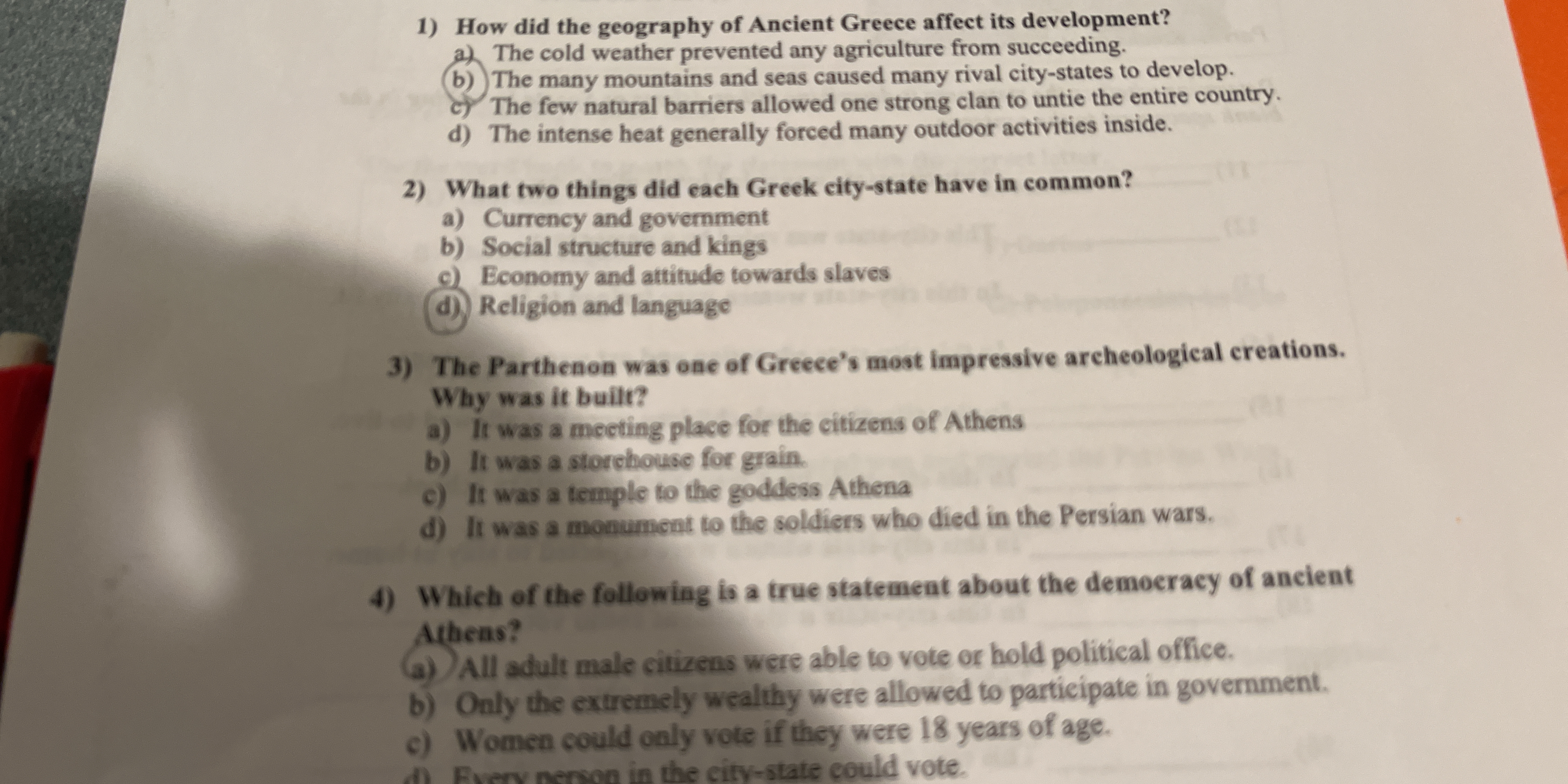How did the geography of Ancient Greece affect its development? What two things did each Greek city-state have in common? Why was the Parthenon built? Which of the following is a t... How did the geography of Ancient Greece affect its development? What two things did each Greek city-state have in common? Why was the Parthenon built? Which of the following is a true statement about the democracy of ancient Athens?

Understand the Problem
The question is asking about various aspects of Ancient Greece, including its geography, the commonalities among city-states, the significance of the Parthenon, and the characteristics of democracy in Athens. It requires understanding historical context and facts related to these topics.
Answer
Mountains led to city-states; shared religion/language; Parthenon for Athena; all male citizens could vote.
Ancient Greece's mountainous terrain and seas influenced the development of rival city-states. Each city-state shared common religion and language. The Parthenon was built as a temple to Athena. A true statement about Athenian democracy is that all adult male citizens could vote or hold office.
Answer for screen readers
Ancient Greece's mountainous terrain and seas influenced the development of rival city-states. Each city-state shared common religion and language. The Parthenon was built as a temple to Athena. A true statement about Athenian democracy is that all adult male citizens could vote or hold office.
More Information
The geography of Greece fostered independence among city-states like Athens and Sparta, each valuing shared religion and language. The Parthenon in Athens honored Athena, embodying religious and cultural significance. Athenian democracy is noted for its male citizen participation.
Tips
Avoid assuming uniform governance in city-states; remember their unique systems.
Sources
- Rise of City-States: Athens and Sparta - USHistory.org - ushistory.org
- Parthenon: Definition, Facts, Athens & Greece | HISTORY - history.com
AI-generated content may contain errors. Please verify critical information